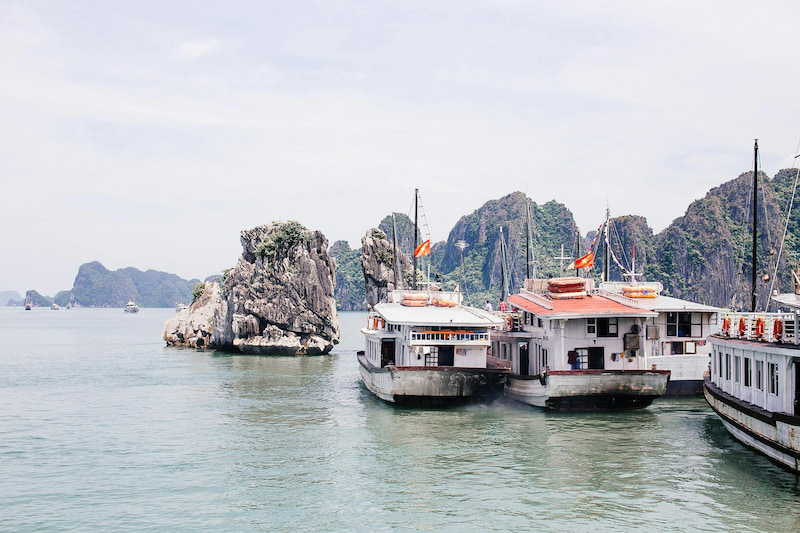Risk perception and travel decisions
For some tourists who happened to be in the bay during the incident but returned safely, the reaction was one of relief or feeling 'lucky'. This reflects a psychological phenomenon called counterfactual thinking, comparing reality to a tragic alternative scenario.
“People often don't process travel risk statistically, but emotionally and narratively”, says Dr Othman.
Dr Katrina Phillips, Senior Lecturer in Psychology program at RMIT Vietnam, adds: “When we are exposed to evidence of the potentially catastrophic nature of some risks (such as the Ha Long Bay tragedy), the risk becomes less abstract in nature, and this makes us even more likely to perceive the potential risk more intensely.”
This heightened perception of risk may influence future travel decisions, particularly among families with young children or elderly members, who are more likely to cancel or postpone trips after such events.
Dr Justin Matthew Pang, Interim Senior Program Manager of the Tourism and Hospitality Management program at RMIT Vietnam, says: “Local travellers who have experienced such tropical storms will be more hesitant to travel. In contrast, international tourists unfamiliar with local weather patterns might be risk-adverse and take the chance to go out to the bay.”
Responsibility and the call for reform
Dr Pang stresses that the onus of responsibility lies with boat operators and authorities, not travellers. “These companies and boat captains have a ‘duty of care’ to their passengers and if they do pursue a negligent action, knowing full well of the consequences, the responsibility is on them.”
“Tourists should be proactive in checking weather forecasts, ensuring their boat operator follows safety regulations, and confirming insurance and emergency procedures.
“Operators must strictly manage the boat’s carrying capacity, ensure there are enough life vests, and enforce their use. Safety demonstrations, similar to airline briefings, should be mandatory,” Dr Pang urges.
To rebuild trust, authorities must intensify safety checks, audit operators regularly, and penalise those who breach regulations. Public education campaigns and clear communication of weather warnings will be critical.
Dr Pang highlights that authorities should place blanket bans on boat activities during inclement weather to protect both locals and visitors.
“Over time, dangerous practices will be ruled out, thereby creating a safety-driven, yet business-sustainable industry governed by responsible and best practices”, he says.
Lessons from global maritime tragedies
Dr Pang points to the 2014 MV Sewol ferry disaster in South Korea as a precedent. That incident claimed 304 lives, triggered national mourning, and led to high-profile resignations and industry reforms.
“Korea responded with systemic change, including pressuring maritime associations, forming grassroots safety organisations, and embedding a culture of accountability. Ha Long must learn from that example,” he says.
According to Dr Pang, the authorities need to reinforce a greater ‘duty of care’ to passengers among the boat operators to regain a sense of trust and confidence from both the locals and tourists – taking a safety and guest-centric mindset.
He recommends inviting independent safety consultants to study the impact of tropical storms on Ha Long Bay and to work with all stakeholders, such as local leaders, operators, and the maritime association, on adopting global best practices.
“This tragedy should be a clarion call to all parties to take passenger-maritime safety to the highest level, lest it destabilises and fractures the entire society,” Dr Pang concludes.
Story: June Pham





